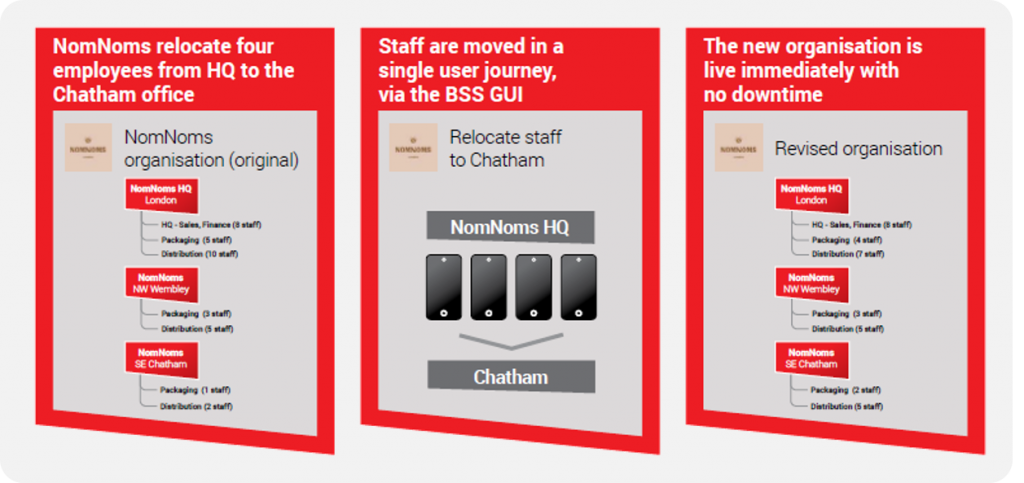There is general agreement that the enterprise market is ripe for 5G specialist services that go beyond simple mobile broadband and can boost operator revenues. However, designing and implementing those services at ‘software speed’ can be hampered by existing business systems. Steve Bowen, CEO of MDS Global, believes a specialist digital approach to enterprise business systems can unlock the market and he’s come up with some examples to demonstrate the potential.
There’s no shortage of analyst reports and opinion that the enterprise market is the place where mobile operators will be able to truly cash in on the benefits of 5G network technology. The consumer market for 5G is largely predicated on faster mobile broadband, it is highly price-competitive, and the consumer audience is renowned for wanting more speed, more capacity and more access for less money.
Appropriate prices in B2B
And while it would be wrong to suggest that price pressures and competitiveness are not present in the enterprise space, those pressures are certainly not the same. For example, within the business-to-business (B2B) enterprise space, there is a far greater incentive and willingness to pay an appropriate price for a specific service, if that service can be shown to aid business efficiency, contribute to an overall reduction in overheads, or drive sales.
What’s more, it is precisely because better use of communications and data can improve business performance that telecoms service providers are placing such high value on addressing the B2B enterprise market; and that the analysts are forecasting its importance to service profitability and 5G return on investment (RoI).
To deliver these potential new services, mobile network and virtual network operators (MNOs and MVNOs) need two things; a greater understanding of the types of services they could be selling, and the flexibility within their business software to quickly implement and monetise new service solutions.
Consumer services to a business audience
Strangely, there are some ‘friends and family’ style services offered within consumer tariffs, and even supported by handset apps, that are far less prevalent in the B2B enterprise world. Too often, the service providers and their underlying business support systems (BSS) lack the degree of flexibility and control required to deliver these solutions on the fly to an enterprise audience. Using a specialist, digital B2B stack through a ‘BSS-as-a-Service’ model allows operators to start to introduce these advanced services immediately, and without disrupting existing business models and systems.
Introducing the seemingly simple facility of allowing a small business owner to manage data usage across a team of staff – gifting data to users from a central balance or converting unused texts into an additional data allowance at an agreed conversion rate, either individually by user or collectively across the team – can be impossible to quickly implement on some established, traditional systems, and yet can be accomplished easily and quickly using digital BSS-as-a-Service.
Demonstrating the potential
To help operators understand the opportunities that can be created and the simple solutions that are available, we published a catalogue of sample B2B use cases, showing how our fictional operator could quickly implement new services for typical small to medium-sized enterprise (SME) customers. The examples range from simple, friends and family style solutions, to more advanced solutions around specialist Internet of Things (IoT) offerings or bundled services with third party companies.

The catalogue shows how, for example, an operator could partner with a supplier of sensors and tracking devices to offer a bundled IoT service aimed at food delivery or storage companies. The service could monitor vehicle movements and temperature control, include in-App alerts to drivers, central monitoring, and improved visibility of business data.
Another example outlines the potential to use the 5G network as a back-up for services that rely on Wi-Fi connectivity. The use case shows how the operator could put together a home or office security service that bundles hardware, Wi-Fi connectivity, 5G back-up, monitoring and notifications in a package available for re-sale by SMEs.
These are the types of offerings that can drive revenues from B2B customers willing to pay for services that demonstrably benefit their business and improve their efficiency or effectiveness. The seven examples in the catalogue highlight the diversity of B2B services and clearly show how the complexity of their launch can be simplified through flexibility of digital BSS solutions.
Mexico shows the way
A real-world example of how digital BSS systems can support this type of flexibility in service delivery already exists in Mexico, where the MVNE (Mobile Virtual Network Enabler) VADSA has established itself to resell not just airtime to MVNO start-ups, but also support services such as digital and operational support systems, including BSS, to start-up MVNOs. This approach allows the new operator to simply concentrate on its brand and its sales proposition and get to market quickly and with little fuss.
One of VADSA’s customers is Exis Telecom, a new entrant to Mexico’s crowded MVNO operator market. However, rather than simply enter the market with a ‘me-too’ offer, Exis has identified specific services it wants to sell, the specialist business partners required to build and deliver them, and access to the type of flexible BSS solution that can monetise the offers and handle the revenue share with the third-party companies.
As a result, Exis Telecom enters the Mexican market as a specialist provider with a range of services that include wireless security systems, education and business solutions, as well as highly flexibly propositions.
The 5G requirement
As the roll-out of 5G services gathers pace, service providers will continue to identify new business opportunities across a range of industries as well as potential partnerships with other business providers. These propositions are likely to go beyond simple connectivity and could potentially involve multiple partners working together to deliver one solution.

Current operator business support systems are not designed to build or support the advances in service provision that 5G can enable. To take advantage of the market opportunity, operators will need a B2B BSS stack that can support on-demand solutions and respond quickly to the demands of a changing 5G environment.
The option of using a cloud-based, on-demand, BSS-as-a-Service provides a clear way forward. Easy to implement, a parallel cloud-based solution supports the introduction of these new advanced services and doesn’t impact current business support systems or put current revenues at risk. It really is the best solution for operators juggling the demands of current services with the need to launch new advanced ones.
The author is Steve Bowen, CEO of MDS Global.
Comment on this article below or via Twitter: @VanillaPlus OR @jcvplus






